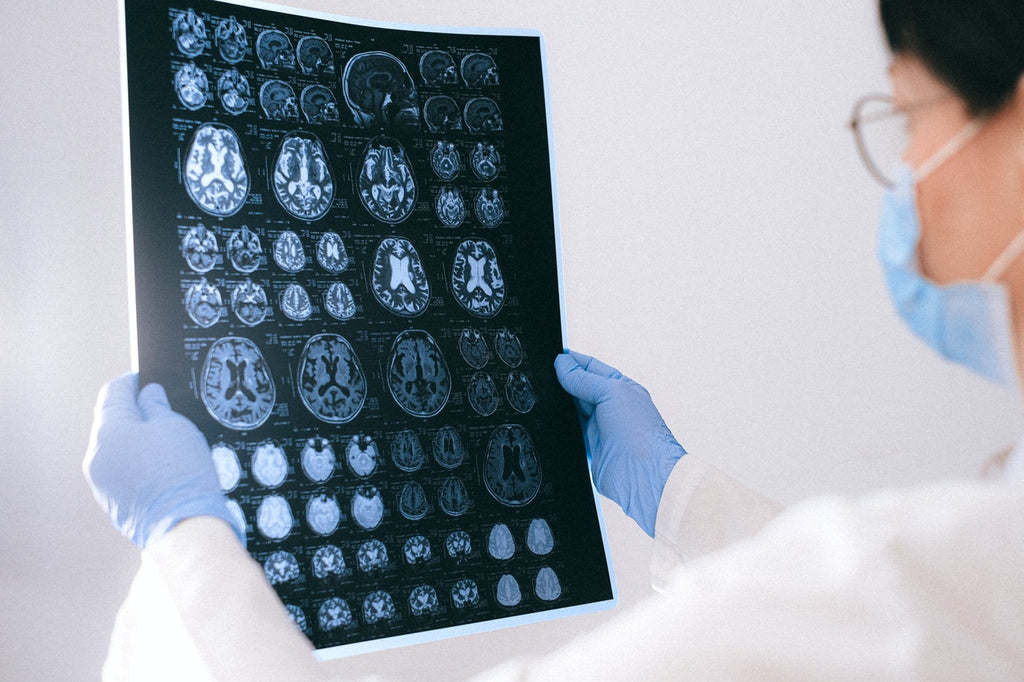
Of all organs, the brain is the one that uses the most energy. The neurons in our brain feel the same oxidative stress that the other neurons feel: repeated glucose strikes increase oxidative stress, leading to neuroinflammation and eventually leading to cognitive dysfunction. However, when we eat “unhealthily” for long, chronic inflammation becomes a key factor in almost every chronic degenerative disease, including Alzheimer’s.
Most people have heard of both type 1 diabetes, an autoimmune disease in which the body fails to produce insulin, and type 2 diabetes, in which the body doesn’t use insulin properly.
In recent years, the term type 3 diabetes has been used to refer to Alzheimer’s since it’s a neurodegenerative disease linked to insulin resistance, which is the hallmark of type 2 diabetes, in the brain.
Keep reading to find out what we know and what we have yet to discover about type 3 diabetes.
The connection between Alzheimer’s and diabetes
Indeed there exists a close connection between Alzheimer’s and glucose levels. That’s why Alzheimer’s is called “type 3 diabetes” or “diabetes of the brain”. For instance, people who suffer from type 2 diabetes are four times more likely to end up suffering from Alzheimer’s than people without diabetes. There are a lot of visible signs, such as poorly controlled glucose in people with type 2 diabetes is associated with deficits in memory and learning. However, these symptoms and even cognitive decline can be reversible in the long term by following a glucose-stable lifestyle.
According to the book Glucose Revolution by Jessie Inchauspé, there’s a link between type 2 diabetes and Alzheimer’s, as we’ve mentioned earlier. It’s been suggested that Alzheimer’s may be triggered by insulin resistance in your brain.
Over time, untreated diabetes can be very dangerous, it can cause damage to your blood vessels, including the vessels in your brain. Diabetes also causes chemical imbalances in your brain, which may be a trigger for Alzheimer’s. Additionally, high blood sugar levels lead to inflammation that, as we already know, damages brain cells.
It’s no surprise that diabetes is considered a risk factor for a condition called vascular dementia. Vascular dementia is an illness on its own with its very own symptoms and it can be considered a warning sign of developing Alzheimer’s in the future. Of course, people who suffer from type 1 diabetes, or especially type 2 diabetes may be up to 60 percent more likely to develop Alzheimer’s disease or any other type of dementia.
You have more risk to suffer from type 2 diabetes when you have a family history of diabetes, suffer from hypertension (high blood pressure), are overweight or obese, and/or suffer from chronic health conditions, such as depression or polycystic ovarian syndrome (PCOS).
Research had shown that our Funky Fat Foods Chocolates do not impact your glucose levels.

Symptoms and diagnosis of type 3 diabetes
Type 3 diabetes is not an official diagnosis yet. Doctors can diagnose Alzheimer’s disease, which, as we know, affects multiple brain functions gradually over the course of many years. Minor memory problems are usually the first sign. Other symptoms can be:
- Memory loss that affects daily living and social interactions.
- Constant and consistent confusion.
- Difficulty planning and completing familiar tasks.
- Disorientation.
- Getting lost.
- Sudden personality and demeanor changes.
- Misplacing things often.
- Agitation/Anxiety.
- Lack of judgment.
- Lack of impulse control.
- Disorganized thoughts.
These symptoms don’t usually appear overnight, they develop slowly with the passing of the years to the point that patients cannot swallow or breathe properly and they lose bowel control and eventually pass away.
There is no specific test to determine if one person has type 3 diabetes. Alzheimer’s disease is diagnosed by a neurologist who is familiar with neurodegenerative memory disorders and runs several tests such as a neurological examination, neurophysiological testing, and reviewing the medical history of the patient to diagnose the patient.
Your health care provider can use imaging studies such as MRI and CT scans of the head to give him or her a picture of how your brain is working. Cerebrospinal fluid testing can also look for indicators of Alzheimer’s.
If you think you have symptoms of type 2 diabetes and Alzheimer’s but haven’t been diagnosed yet with either one, you should go to your doctor and ask for a full examination for both diseases. You can ask for a fasting blood sugar test and a glycated hemoglobin test. If you actually do have type 2 diabetes it’s vital that you start your treatment ASAP since it will help minimize the damage to your brain and body and slow down the progression of Alzheimer’s and dementia.
Type 3 diabetes treatment
We must make something very clear and that is that for now, there is no cure for type 3 diabetes (Alzheimer’s disease). However, doctors may prescribe drugs and treatments to slow the progression of this condition or treat its symptoms.
Type 2 diabetes and type 3 diabetes have different treatments. In spite of that, both treatments have something in common: lifestyle changes need to be done. For instance, you’ll need to make changes in your diet and include exercise in your daily routine, and adapt them if you’re doing it already.
Besides these lifestyle changes, if you’re overweight, you should try to lose weight, among the 5 to 7 percent of your body mass. This can help stop organ damage caused by high blood sugar and also will allow you to have a better life. Besides, being overweight it’s been proven to increase the risk of developing type 2 diabetes and type 3 diabetes as well, therefore, we suggest you speak with a dietitian to define your goals together and work towards them hand in hand.
If you smoke or drink alcohol regularly it is highly recommended to quit both of those habits, since it will help you manage your condition. Following a healthy and balanced diet low in carbs and adopting a healthy lifestyle with daily movement will improve your condition.
Other symptoms of Alzheimer’s and other dementia types can be treated with psychotropic drugs. But it’s important to take the medication prescribed by the doctor whether you suffer from type 2 diabetes or type 3 diabetes.
If you already have type 2 diabetes, there are ways to manage it and minimize organ damage:
- Exercise, at least, 4 times a week for at least 30 minutes per day.
- Follow a healthy and balanced diet rich in fiber and protein.
- Monitor your blood sugar levels and your cholesterol levels.




Leave a comment
All comments are moderated before being published.
This site is protected by hCaptcha and the hCaptcha Privacy Policy and Terms of Service apply.